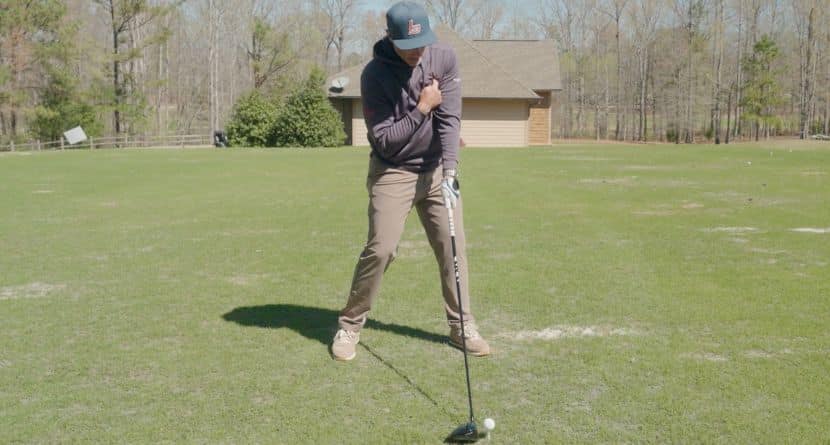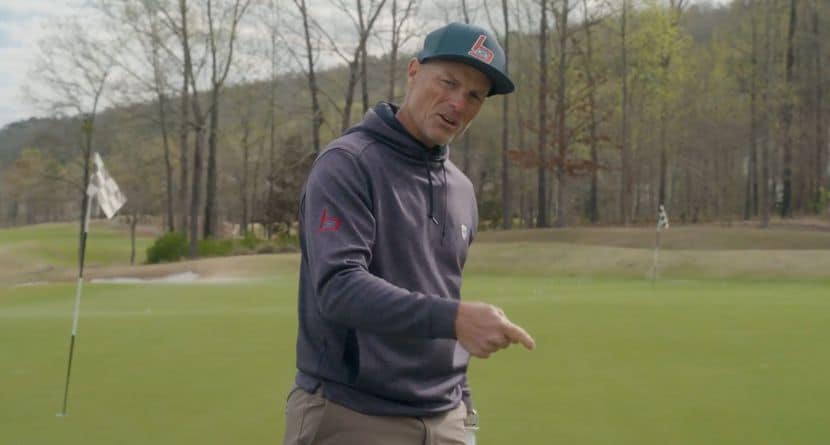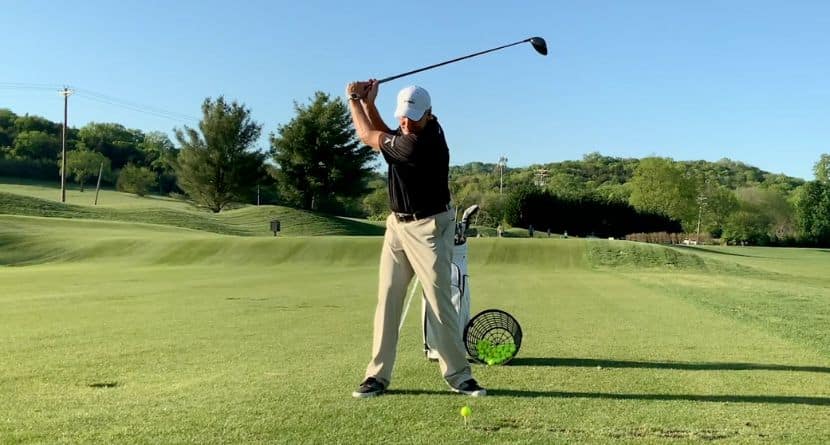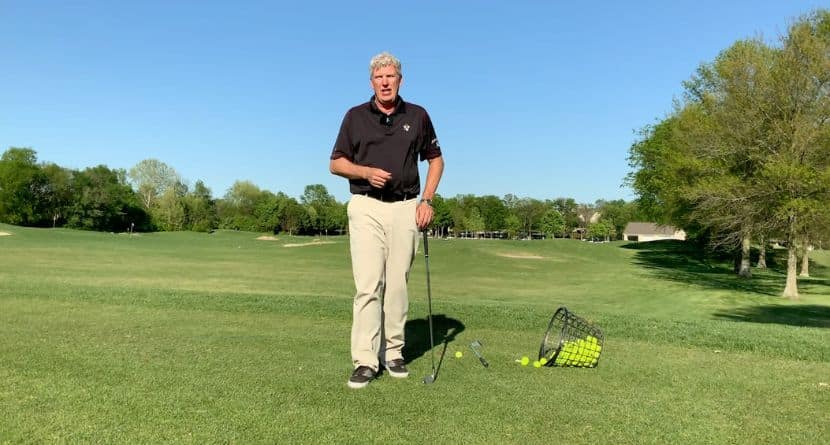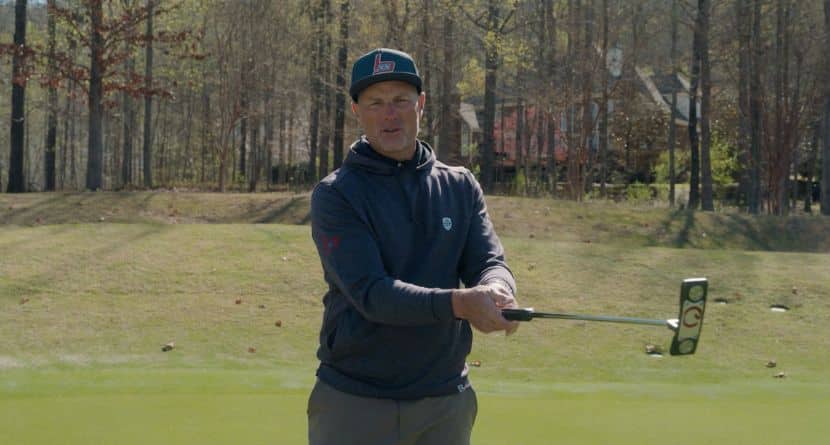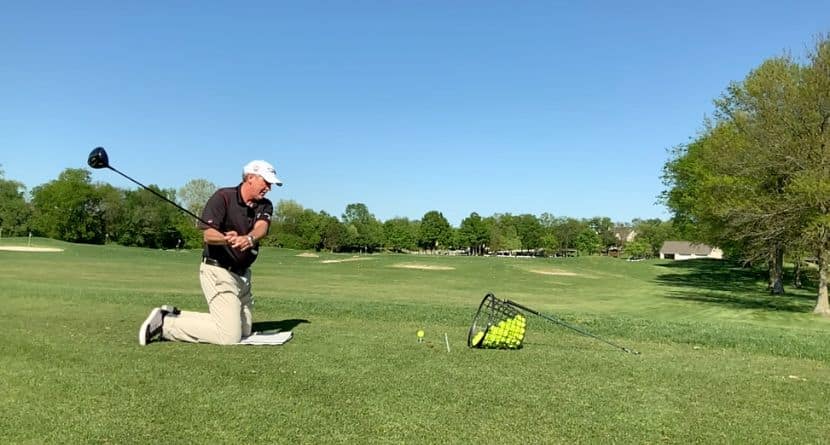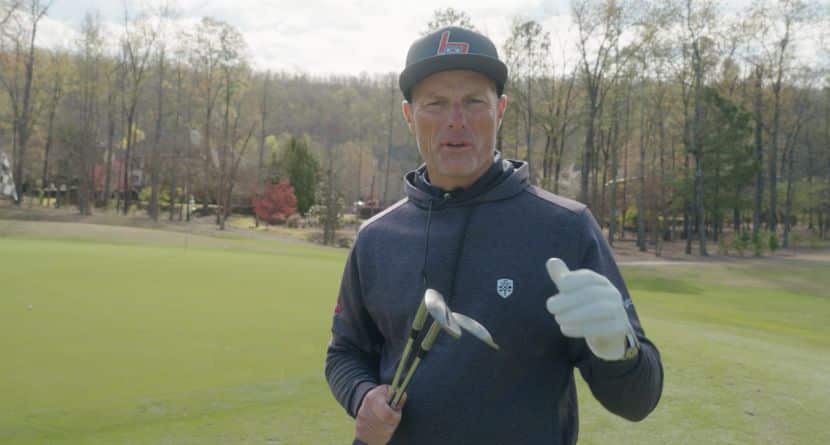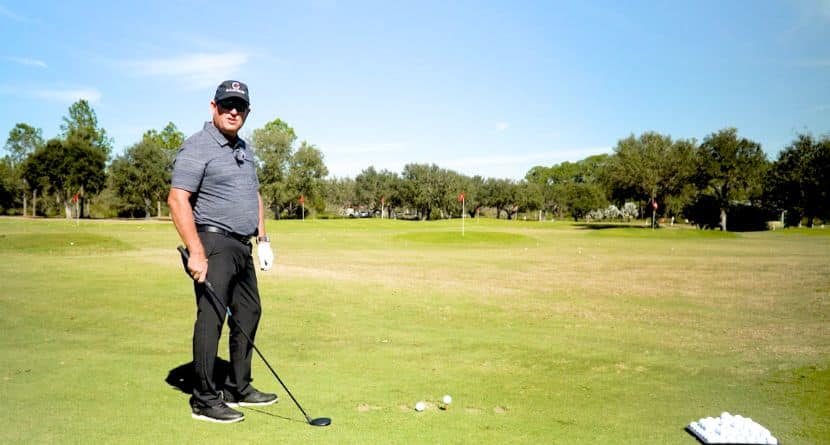Many amateurs struggle with casting the club before impact. By “casting,” we mean all the power generated has been released before impact and often the ground is contacted before the ball. There are a few causes of this “early hit” swing flaw and today we are going to address how excessive forearm rotation and rolling of the hands can play into an early release of the club.
We are going to look at Larry’s golf swing and how his backswing motion puts him in a poor impact position. Larry has played golf for more than 25 years and is a 17 handicap. He is satisfied with his drives off the tee and can manage himself well around the greens, but does not understand why he struggles to hit crisp iron shots.
Let’s take a look at what is holding him back.
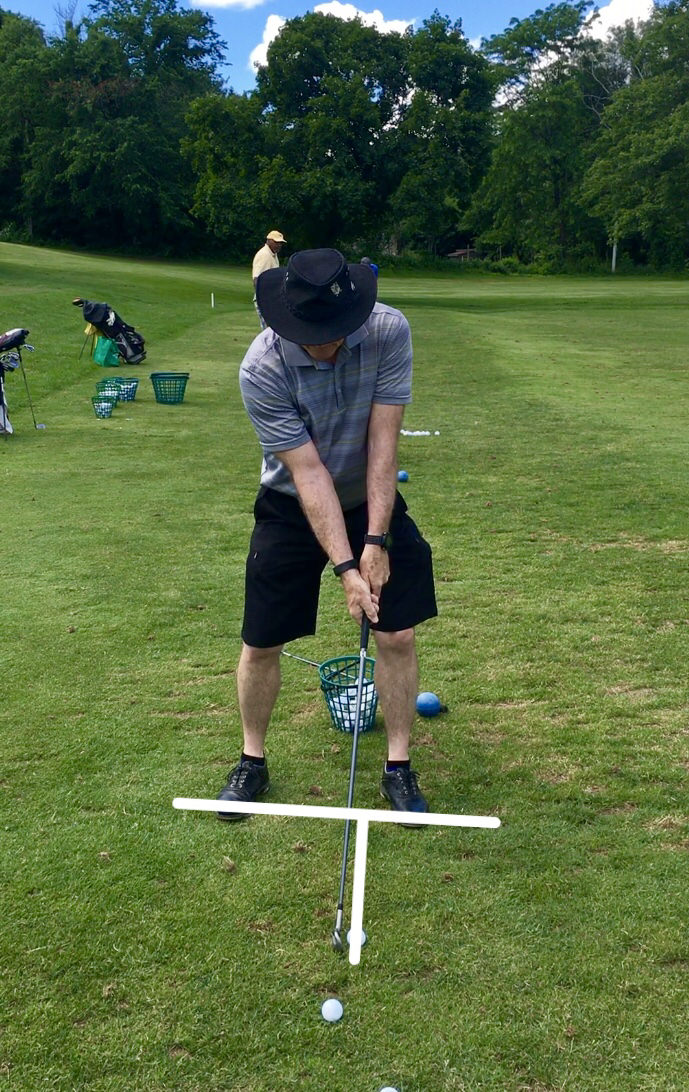
Here is Larry at address; he is hitting a 7-iron. We can see the ball is too far forward and his right hand grip is very strong. A solid iron shot could be hit with this setup and his struggles were a result of more than just setup issues.

As Larry started his backswing, the first issue we were going to fix presented itself. Notice in contrast to the setup position how Larry has rolled his hands to start the swing (red circle).
To do this, he has rotated his forearms and as a result, he has limited his shoulder rotation. Even worse, the clubface is now open relative to the path it should travel and will need to be manipulated during the rest of the swing to return to square at impact (yellow circle).
If you feel you may struggle with a similar takeaway issue and want to check, if the logo on your glove faces upward or if you were to wear a watch and the watch face is pointing to the sky, there is early and excessive rotation in your swing.

Here the swing is at the top of the backswing position. Inside the red circle we see the hands have followed a low and inside path resulting in a flat swing plane and the open clubface is laid off (pointing left of the target line).
It is important to remember giving your hands and arms early control of the swing, as Larry does, almost always means the shoulders and upper body will not rotate properly. The left shoulder has not made it past the ball, which should have been easy given the ball position was too far forward.
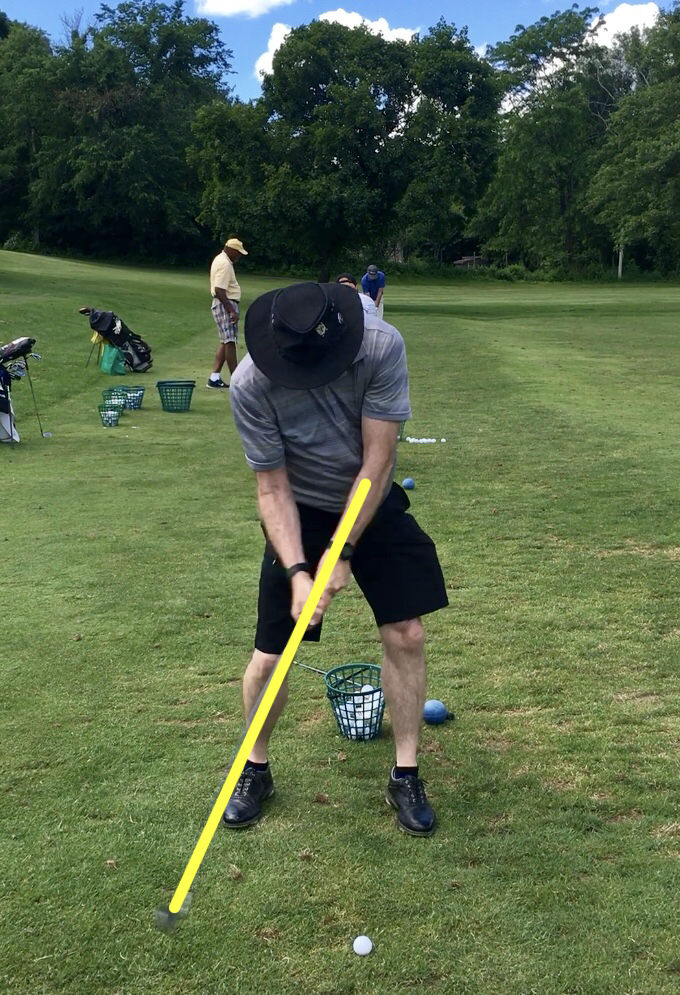
Here is the most common result of the flaws we have addresses. The flat and laid off position at the top of the backswing meant Larry was going to continue to drive the swing with his hands rather than start the downswing on plane with his hips and upper body (big muscles).
Using just hands and arms in the swing, Larry does his best to generate speed into the ball and has to cast the club head to try and get the clubhead to the ball.
This, again, is the result of no body rotation.
A proper swing allows for the hands and arms to follow the body and you will see better players able to save the hand action for just before impact.
With Larry’s club shaft and arms in a straight line (yellow line), this represents his point of maximum power and he still has to hit the ball.
He can only slow down from here.
So what can he do?
Larry should look to keep the clubface square to the target until the halfway back position of his backswing, making sure the shaft is parallel to the target line and the toe of the club is pointing straight up.
If you’re struggling with casting the club and getting less-than-ideal impact with your irons, take a video of your swing and see if you’re guilty of some of the same flaws Larry has exhibited.
As always, feel free to check out the Swing-U app and get personalized, 1-on-1 feedback from certified instructors.


